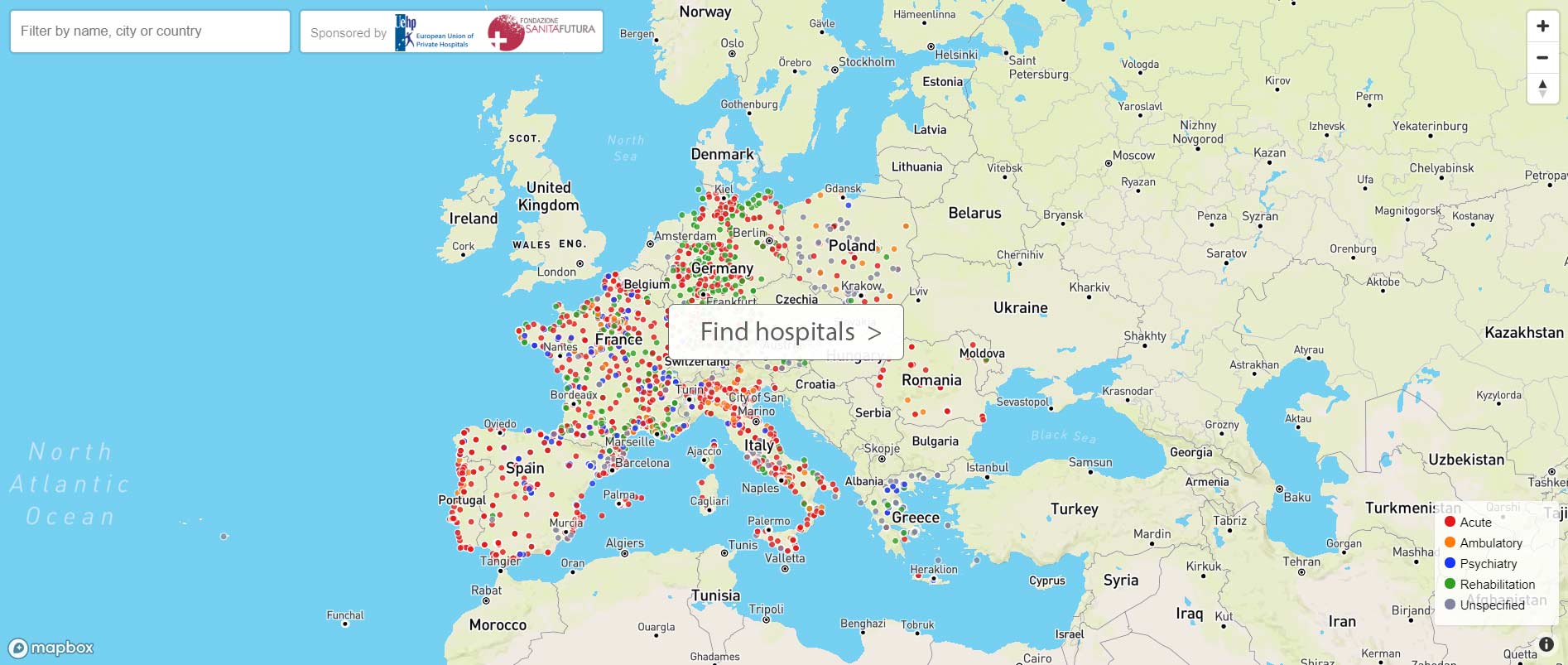In a key points paper, private hospitals have summarised their ideas about the future hospital structure in Germany. The proposals of the German Federation of Private Clinics (BDPK) are addressed to the expert commission that is currently working on reform proposals on behalf of the Federal Ministry of Health.
The key points include the opening of hospitals to outpatients and the expansion of regional flexibility, telemedical networking of hospitals at the different levels of care and a focus on the quality of the services provided. The central demand for more patient and competition orientation is also important.
From the coalition agreement:
“With a federal-state pact, we are initiating the necessary reforms for modern and needs-based hospital care. A government commission set up at short notice will present recommendations on this and, in particular, draw up guidelines for hospital planning based on service groups and care levels and oriented towards criteria such as accessibility and demographic development. It will present recommendations for a further development of hospital financing that supplements the current system with a system of revenue-independent, fixed lump-sum payments differentiated according to the level of care (primary, basic, standard, maximum care, university hospitals). In the short term, we will ensure adequate funding for paediatrics, emergency care and obstetrics in line with demand.”
Positions and proposals of the BDPK
I. Promote the opening of hospitals to outpatients and the expansion of regional scopes
The planned restructuring of hospital planning is an opportunity to improve the necessary interlinking of outpatient and inpatient care and, if necessary, to initiate structural adjustments in inpatient care. Such a concept must meet the following challenges:
- The shortage of skilled workers.
- The demographic development, which will lead to more elderly patients in Germany in need of care, who will have to be cared for by fewer and fewer medical and nursing professionals.
- The equality of the quality of care (here: health care) in rural and urban areas.
- The abolition of the sectoral boundary between outpatient and inpatient care.
- The reduction of under- and overprovision in inpatient care.
- The consideration of hospitals of all sizes. In particular, the services of specialised providers, which relieve maximum care providers and provide high quality through specialisation, must also be taken into account.
- The hospital planning process must take into account the quality of the services provided. Only in this way can the requirement of plurality of providers from § 1 of the KHG be implemented without discrimination. Whenever possible, quality of outcomes must be the basis for measuring the success of treatment. The current practice of defining quality primarily through the specification of defined structural quality criteria does not do justice to the goal of real quality improvement.
II. levels of care
The levels of care and their content-related requirements are defined nationally by legislative stipulation. Delegation to the interest-driven self-administration of health insurance funds and hospitals (G-BA) cannot take place.
BDPK proposal for care levels:
- Outpatient care centres at hospitals no longer in need (e.g. converted rural or urban providers). Supplemented by cooperation and telemedical connection to a hospital of a higher care level.
- Basic care hospital: outpatient, day-care and inpatient basic care. Prerequisite is cooperation and telemedical connection to a hospital of a higher care level.
- Hospital for specialised care: more than four specialist departments, 24-hour availability of intensive care, unit for stroke care, CT, MRI, laboratory diagnostics, cooperation and telemedical connection to a hospital of a higher care level.
- Specialised care: designated special clinics, also with medical staff, e.g. heart centres (cardiac surgery and cardiology), neurological early rehabilitation of phases B, diabetology, conservative orthopaedics, geriatrics, hand surgery, pain therapy, burns, endoprosthetics, ophthalmology, paediatrics and adolescents.)
- Maximum care: more than nine specialist departments, 24-hour availability of intensive care unit, left heart catheter, stroke unit, CT, MRT, laboratory diagnostics, supraregional significance
- University care (like maximum care, additional tasks in research/teaching).
III. The following principles apply:
- Specialisation serves to improve quality. This applies regardless of the size of the hospital.
- Hospitals at lower levels of care network telemedically and/or cooperatively with a hospital at the next higher level of care. This means that patients with complex diseases quickly have access to additional medical expertise.
- Uniform national definition of care levels as a basis for hospital planning by the Länder.
- Remuneration is independent of the level of care (no deductions for the provision of services in a lower level of care).
The DRG system is to be supplemented by the financing of non-revenue-related maintenance costs. A balance must be found between excessive competitive pressure and quality-hostile subsidisation.
Extract from an article published in the BDPK newsletter, June-July 2022


